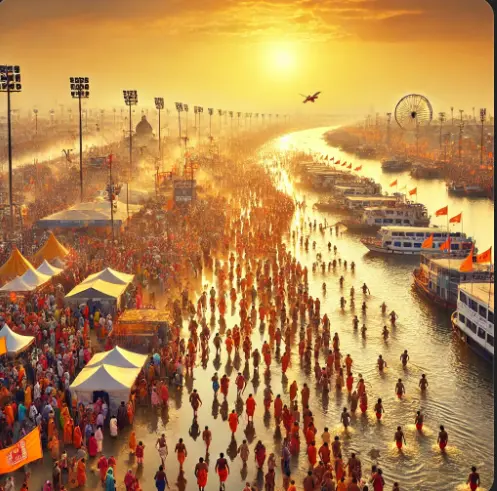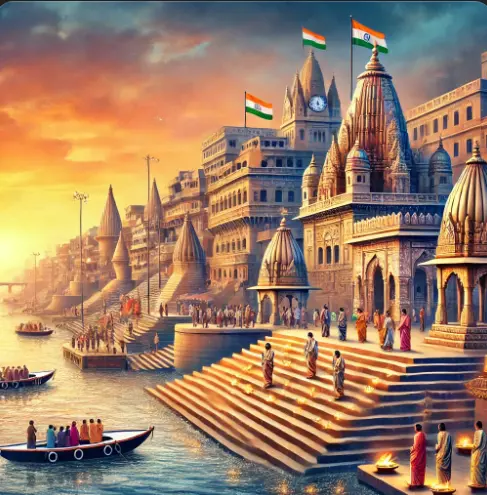Culture
Culture is the collective way of life of a group of people, including their beliefs, customs, traditions, language, arts, and social behaviors. It reflects their history, values, and worldview, influencing how they interact with the world and one another. Culture evolves over time and varies across regions, shaping societies and their identities.

India is home to more than 2,000 distinct languages, making it one of the most linguistically diverse countries in the world. Hindi and English are the official languages, but each state in India can have its own official language, contributing to the rich cultural and linguistic tapestry.

India is home to the world's largest gathering of people—The Kumbh Mela!
The Kumbh Mela is a massive Hindu pilgrimage that takes place every 12 years at four different locations: Prayagraj, Haridwar, Nashik, and Ujjain. It is the largest peaceful gathering in the world, with over 100 million pilgrims attending in some years. This grand event, recognized by UNESCO as an Intangible Cultural Heritage, involves rituals, holy dips in sacred rivers, spiritual discourses, and cultural festivities.
India is home to the world's oldest continuously inhabited city—Varanasi! 🏙️🛶
Varanasi, also known as Kashi or Benares, has been a spiritual and cultural center for over 3,000 years. Situated on the banks of the Ganges River, it is a sacred place for Hindus, Buddhists, and Jains. The city is famous for its ancient temples, ghats, and vibrant traditions, including the mesmerizing Ganga Aarti performed every evening.
